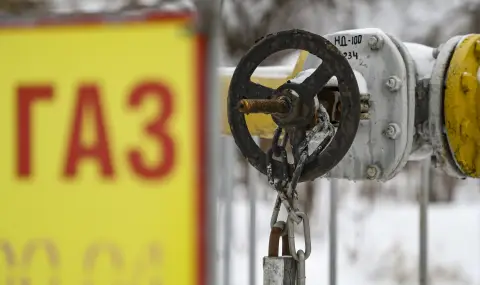The idea of Russian gas flowing again through pipelines to Europe today does not sound as incredible as it did a few months ago. While the media reports that Vladimir Putin has agreed to the US proposal for a ceasefire in Ukraine along the current frontline borders, there is also speculation that Russian gas will return to the European energy grid.
Last month, several German CDU politicians welcomed the idea of repairing the "Nord Stream" 1 and 2 pipelines.
US and Russia want to make a deal on "Nord Stream"
It is claimed that Russia and the US also want to agree on the return of "Nord Stream" to operation. Russian Foreign Minister Sergei Lavrov recently confirmed that this topic is part of the discussions with Washington. At the same time, information has emerged that several American investors are interested in buying the joint-stock company “Nord Stream 2” - a subsidiary of Russia's “Gazprom”. In January, the company's bankruptcy proceedings were postponed until May. A court document shows that, according to “Gazprom”, the Trump administration could “significantly change the situation with “Nord Stream 2”.
According to Chris Weaver, an investment advisor who has worked in Russia for over 25 years, serious talks are currently underway to transfer the pipeline to American hands. “There are offers from potential buyers from the United States who want to acquire the infrastructure and play the role of an intermediary between “Gazprom” and German buyers,” he explains.
However, Ben Hilgenstock of the Kiev Institute of Economics believes that neither the US nor Russia can impose on Europe what energy it will use. “Whatever Moscow and Washington agree on regarding "Nord Stream", it will not matter at all. Europe decides for itself in each individual country whether it wants Russian gas or not".
German business has problems with expensive energy
Diversification from Russian gas and oil has led to higher energy prices in Europe in 2022 and 2023. Although they have fallen after the initial peak, if Russian energy returns to the European market, this will certainly reduce prices.
German companies do not hide that high energy prices are a serious problem for them. A spokesman for chemical group BASF confirmed this to DW, but declined to speculate on a potential deal to restore Russian energy supplies.
Wolfgang Grosse Entrup, managing director of the German Chemical Industry Association, also told DW that the association's members "welcome measures to reduce excessively high energy prices," but at the same time stressed that it was important that this be done through "reliable partners." Entrup recalled that Russia unilaterally suspended gas supplies via the "Nord Stream 1" pipeline in August 2022. "We should not return to old, supposedly comfortable, habits and avoid excessive dependence on individual countries in the future," he added.
However, Hilgenstock warns that cheaper energy will be a lure and certain circles will not stop talking about it. “That's where the political pressure comes from”, the expert commented.
The path to resuming supplies is complicated
The political opposition to returning to Russian gas is very serious in Europe. The European Commission has also officially strengthened its position on the issue. The EU has committed to abandoning all Russian fossil fuels by 2027, and on May 6 the European Commission plans to publish a detailed strategy and roadmap on how it plans to achieve this. In this context, Hilgenstock believes that support for the restoration of “Nord Stream“ would be “absolutely strange and grotesque”.
“I think that this will demonstrate that we are fundamentally not serious about the sanctions against Russia. "If we turn around on this issue, it means that we were not serious at all about stopping Vladimir Putin from continuing his war against Ukraine and threatening the peace and prosperity of Europe," the expert commented. And even if some German and European politicians support the potential resumption of "Nord Stream", there are many technical obstacles to this, Hilgenstock said. For example, "Nord Stream 2" was never certified by Germany and it is unlikely that the new government will take such a step.
In addition, significant repair work is needed, which Chris Weafer believes could start relatively quickly if the US manages to convince the EU of the advantages of the deal. The expert expects some Russian gas to return to Europe, "but probably no more than 50% of the volume that was sold before the invasion" in February 2022.
However, Hilgenstock believes it is vital that the EU makes it clear to the US that reopening the Nord Stream pipelines is not up for discussion. "We simply have to say that this is not going to happen. And whatever pressure you try to put on us, we will not undermine a fundamental element of our policy of limiting Russian influence and dependence," he added.
